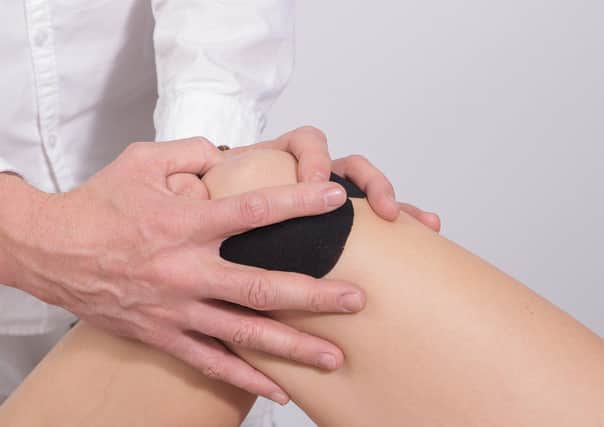FEELING GREAT: Explaining why your knees can make strange noises


Because, as you no doubt know, clicking, clunking and cracking are common, audible sounds that come as an inevitable consequence of growing older and they become more noticeable somewhere in the 40-50 age bracket.
Chances are that if you’re 50 or over, clicks and clunks might even be the first sound that you hear when you get out of bed in the morning. What’s just as common is a grating noise which occurs when the surfaces of your knee joints rub together each time you bend your legs (or move between positions).
Advertisement
Hide AdAdvertisement
Hide AdI could go on and on describing the different noises that come from ageing knee joints - it’s so common that the question “Why does my knee click and crack?” is one of the most frequent we get asked in the Paul Gough Physio Rooms.
As it happens, is also one of the easiest to explain: your knee’s job is to cushion and absorb the shock it receives from the pounding, twisting and impact of hard surfaces every time your foot lands when you walk.
Your knee takes a pounding from the hard surfaces you walk on, regardless of what else you do. Add this to the pounding your knees take as a direct result of playing five-a-side football after work in a sports hall, running along the sea front, playing bowls, golf, or just taking a long walk around the park with friends on a weekend. The upshot of all this is that, over time, this cartilage wears thin (or disappears completely), exposing nerves and causing pain but also leaving uneven surfaces that can collide – and because these bones in your knee joint are very tough and hard (as you might well expect), they cause a distinct noise when they rub against each other as you move.
And that’s it: the phenomenon of knee joint noises explained!
Advertisement
Hide AdAdvertisement
Hide AdThe noises don't always mean you’ll get knee pain - not at first anyway. But it’s often the first sign that trouble in the form of pain, stiffness and swelling is on the way and you’re not too many years away from it. If you like, it’s a warning sign to act fast and do something before things turn for the worse.
Next week I’ll tell you what you can do about it.
For more tips and advice, please get in touch for a FREE copy of my book The Healthy Habit. It is essential reading people aged 50+ in the North-East, and for anyone that would like to improve their own healthy habits. Please call 01429 866771 or visit paulgoughphysio.com.